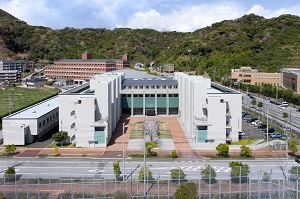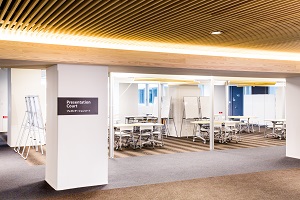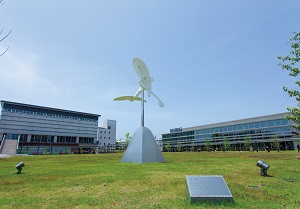本文
Graduate School of Nursing Member List
As of April 5 , 2018
Dean:Ayami Nakano
Master’s Program
| Name | Position | Speciality | Research Theme | Research Outline |
|---|---|---|---|---|
|
Ayami Nakano |
Professor | Child Health Nursing | Caring for children living with illnesses, and their families |
*Nursing intervention to empower children and families *A study on decision-making support for children and families *A study of advanced practice nursing by certified nurse specialist in child health nursing |
|
Hiroko Azechi |
Professor | Psychiatric Mental Health Nursing |
Expertise in psychiatric mental health nurses Nursing care for the persons with mental disorders and their families |
The field of research that I am interested in is the expertise of psychiatric mental health nurses. In recent years, the situation around mental health area has been drastically changing. In changing circumstances, there are concerns about what kinds of support people with mental disorders and their families need, and how nurses can best respond to their needs. I would like to explore these issues and focus on the expertise of psychiatric mental health nurses. |
|
Shino Ikezoe |
Professor | School Nursing, Family Health Nursing, Fundamental Nursing | Caring and supporting lives of children and families |
A study on support for children and families in school A study of school nurses’ care supporting the ability of children and families to live Nursing intervention to empower children and families The family’s career of care-giving in the reconstruction of family life |
|
Mitsunori Ikeda |
Professor | Medicine, Dermatology, Pathophysiology, Physical Assessment | Pressure ulcers, collagen diseases, microcirculation, cutaneous physiology, and dermatoses caused by anticancer agents | Our group is advancing research to reveal the conditions of patients, which changes every second, and tries to apply the results in practical nursing. First, we will conduct research to predict the delirium and pain of perioperative patients from substances in saliva. Second, we will investigate which physiological phenomena occur in the skin just before the onset of pressure ulcers and try to prevent pressure ulcers in bedridden patients. We start the research to create nurse-led systematic foot-care by using specialized monitoring equipments. Finally, we will investigate the cutaneous pathophysiology of hand foot syndrome caused by anti-cancer agents. |
|
Masako Uchida |
Professor | Clinical Nursing, Chronic Care Nursing |
Lifestyle-related diseases, life span development, illness trajectory, self-care mastery, recasting biography, critical life transition, case study research methodology, reflective practice, expertizing process, continuing education |
Statistical analysis on relationships among life reorganization and related factors for adults living with chronic illness Descriptive study of critical life transition caused by chronic illness Reconstruction of case study research methodology in chronic care nursing practice Development of a continuing education program for expertized nurses utilizing reflective case study research Development of a program which supports constructing regional networks and collaboration between hospitals and local nursing in order to prevent aggravation of cerebro-cardio-renal-vascular diseases |
|
Hiroko Uryu |
Professor | Family Health Nursing, Fundamental Nursing |
Experiences of families living with members who have a disease or disability Nursing care for families living with members who have a disease or disability |
The illness of a family member affects the whole family, but a family will exert its power and strive to overcome various difficulties. I am interested in the experiences of families living with ill family members, especially the efforts that families make to alleviate difficulties and the strength of their families. In addition, I am exploring nursing intervention measures to empower the family. I mainly use a qualitative description method as my research design. I am working on developing a nursing care program to enhance family hardiness in families living with members who have a neuropsychological disorder. |
|
Norimi Okawa |
Professor | Critical Care Nursing | Development of grief care guidelines in critical care | The research objective is to develop grief care guidelines in critical care based on the experiences of bereaved families. We will create a grief care optimization model from a survey of nurses' grief care and further verify it based on interviews with bereaved families. We will combine these results, examine the contents necessary as grief care guidelines, and develop care guidelines that can be utilized in practical settings. |
|
Sakiko Kanbara |
Professor | Disaster Nursing, Public Health | Participatory monitoring of care to reduce the risk of disaster | The aim of the research is to develop new doctoral degree courses on disaster nursing global leaders. The primary research interests are in the fields of human security, disaster reduction and nursing include global health, disaster and nursing. It is conducted in collaboration with local government and the private sector to implement disaster risk reduction and care. Recent collaborations includes a manuscript written with colleague entitled “Japanese experience of evolving nurses’ roles in changing social contexts," published in the International Nursing Review (2017). The researcher's work with the Nursing Association of Nepal, "Epinurse: Participatory monitoring for health security on disaster," received the Risk Award 2017from Unisdr. |
|
Masako Tai |
Professor | Psychiatric Mental Health Nursing |
Nursing care for empowering psychiatric patients Nursing care and support for families of patients with mental disorders |
To maintain a lifestyle that suits each individual patient, it is important for nurses to provide psychiatric patients with self-management skills that address the specific challenges coming from the disorder. I am exploring nursing care practices that support the strengths of psychiatric patients and can fully demonstrate their strengths. I mainly use qualitative descriptive methods as my research design. I am working on developing nursing care models and programs for psychiatric patients based on nursing care approaches revealed in my research. |
|
Kumiko |
Professor | Gerontological Nursing |
Elderly and dementia care at long-term care facilities. Disaster preparedness of nurses |
Research on the well-being of elderly people living in community A study on the comfort after surgery of elderly with dementia Research on the preparation of local nurses against the Nankai Trough Earthquake |
|
Miki Tokinaga |
Professor | Community Health Nursing | Intervention techniques of public health nurses, vulnerability | |
|
Kazuko Nagato |
Professor | Family Nursing, Fundamental Nursing | Family management, families with chronically ill members | Our group is advancing research to develop nursing intervention measures to facilitate family management of families who care for a family member with chronic conditions such as diabetes mellitus, neuromuscular disease and so on. We aim to develop nursing intervention measures to promote the competence of family management so that families can moderate the impact caused by illness and promote adaptation to daily family life living with a chronically ill patient. |
|
Sawa Fujita |
Professor | Cancer Nursing | Development of method of care for cancer patients and their families when they move from hospital care to home care | The purpose of this study is to develop, in cooperation with oncology-certified nurse specialists, nursing guidelines that support the empowerment of terminal-stage cancer patients in the transition to at-home care. |
|
Yasuko |
Professor | Home Health Care Nursing |
Nursing intervention by home-visit nurses Creation of community-hospital collaborative discharge systems Case management |
Our group is advancing research on creating community-hospital collaborative shift support systems for interprofessional collaborative practice of homecare and hospital staff. Our group also is advancing research on specialized skills of home-visit nurses, and development methods for case management supporting the QOL of elderly persons. |
|
Etsuko |
Professor | Cancer Nursing |
・Development of nursing care for elderly cancer patients undergoing therapy at an outpatient unit ・Continuing education for nurses |
My research theme is nursing care for cancer patients undergoing palliative radiotherapy or chemotherapy at an outpatient unit. Although the patients have various physical and psycho-social problems, they are able to show their strength to overcome those challenges. My work is aimed at developing intervention measures that promote the resilience of such patients in the face of life-threatening illnesses. |
|
Satoru Yamada |
Professor | Nursing Management, Disaster Nursing | Nursing management systems, disaster nursing support systems | Bynalyzing the relationship between humans and the system and improving the consistency of the interfaces between them, the system can be operated efficiently. I am studying the evaluation and design of nursing systems not only from the perspective of medical equipment but also from the perspective of interfaces in every setting of the nursing system. |
|
Yoko Nakayama |
Adjunct Professor | Psychiatric Mental Health Nursing Disaster Nursing |
Development and utilization of self-care assessment tools for patients with mental disorder in clinical settings Exploring of the survival strengths of the disaster victims who face long-term evacuation after the Great East Japan Earthquake. |
・The purpose of this study is to develop self-care assessment tools for psychiatric nurses who assess the self-care abilities of patients with mental disorders in daily life activities and promote psychiatric nurses’ competencies by utilizing the assessment tools. At present, three kinds of assessment tools have been developed: the revised Japanese-version self-care assessment tool, the Japanese version self-care assessment tool for psychiatric acute care units, and the self-care self-evaluation tool. Psychiatric nurses try to use these assessment tools in clinical settings. ・The purpose of this study is to identify the influencing factors on the survival strengths of community residents who have been forcibly displaced from their homes due to the Fukushima Nuclear Accident during the Great East Japan Earthquake. |
|
Hiroko Minami |
Adjunct Professor | Disaster Nursing | Global development of disaster nursing | Disasters frequently occur across borders and are becoming more complex. How disaster nursing in the world contributes to achievement of the Sendai Framework for Drr is a critical issue. Expansion of international networks of nursing research projects will be essential for our projects. |
|
Yoko Uchikawa |
Associate Professor | Nursing Management, Nursing Education | Teamwork competency in nursing, leadership in nursing, nursing education |
My primary research interests are in the fields of leadership, teamwork in nursing, and interprofessional collaboration in the healthcare system. I will conduct a research to promote educational program development and experiential learning that focus on the competency of teamwork in nursing. |
|
Michiko |
Associate Professor | Home Health Care Nursing | Transitional care, hospice care | In our research, we develop a system for collaboration between hospital staff and home care staff in regard to transitional care. The Community-hospital Collaborative Transitional Care System is a system that may enable the participants to create and implement various care methods in order to achieve early recovery or help establish the home care life of the patient. The system requires such conditions as interdisciplinary cooperation between home care specialists and hospitals, open dialogue based on an equal relationship, and mutual application of arts and resources. |
|
Mio Sato |
Associate Professor | Child Health Nursing |
・Development of a collaborative support program for disaster preparedness for children requiring medical care and who are being treated at home, and their families ・Research on coping with disasters for children receiving home-based medical treatment, and their families ・Research on children discharged from a Neonatal Intensive Care Unit (Nicu) and their families ・Research related to children’s self-care |
・My main research interests at present are research on children discharged from a Nicu, and their families, and research related to ways in which children receiving home-based medical care and their families can cope with disasters.
・In regard to research related to children discharged from a Nicu, and their families, I am studying the kinds of process families follow as they raise their children in the community. ・ In regard to research related to ways in which families and their children receiving home-based care can cope with disasters, I am studying how communities, children and families can cooperate to prepare for impending disasters. I am working on a collaborative support program for disaster preparedness for children, families, community residents, and healthcare professionals. |
|
Naoko Arita |
Assistant Professor | Child Health Nursing | Research on shared decision-making (Sdm) by adolescents |
The purpose of this study is to develop a set of nursing practice programs for shared decision-making by adolescents with hematological and oncological disorders achieved by working with their parents, physicians, and nurses. Analysis of interview contents revealed that Sdm requires the combined efforts of the adolescents, their parents, and health care practitioners. It also involves developing an attitude about the decisions they make together, and actualizing and accomplishing the goals they have set. |
|
Kyoko Takatani |
Assistant Professor | Child Health Nursing |
To explore the trajectory of adolescents with chronic conditions, and their parents. To clarify the development of nursing programs and guidelines for children and families with acute or chronic conditions. |
My research explores the lived experiences of adolescents who had a chronic illness, along with the experiences of their parents. Data was collected through in-depth interviews in which adolescents, fathers, and mothers were interviewed separately. Data were analyzed qualitatively. Results revealed their chronic condition trajectories. Nurses need to understand the adolescent-parent trajectories of intertwined suffering experiences. |
| Name | Position | Speciality | Research Theme | Research Outline |
|---|
| Name | Position | Speciality | Research Theme | Research Outline |
|---|---|---|---|---|
|
Ayami Nakano |
Professor | Child Health Nursing | Caring for children living with illnesses, and their families |
*Nursing intervention to empower children and families *A study on decision-making support for children and families *A study of advanced practice nursing by certified nurse specialist in child health nursing |
|
Hiroko Azechi |
Professor | Psychiatric Mental Health Nursing |
Expertise in psychiatric mental health nurses Nursing care for the persons with mental disorders and their families |
The field of research that I am interested in is the expertise of psychiatric mental health nurses. In recent years, the situation around mental health area has been drastically changing. In changing circumstances, there are concerns about what kinds of support people with mental disorders and their families need, and how nurses can best respond to their needs. I would like to explore these issues and focus on the expertise of psychiatric mental health nurses. |
|
Shino Ikezoe |
Professor | School Nursing, Family Health Nursing, Fundamental Nursing | Caring and supporting lives of children and families |
A study on support for children and families in school A study of school nurses’ care supporting the ability of children and families to live Nursing intervention to empower children and families The family’s career of care-giving in the reconstruction of family life |
|
Mitsunori Ikeda |
Professor | Medicine, Dermatology, Pathophysiology, Physical Assessment | Pressure ulcers, collagen diseases, microcirculation, cutaneous physiology, and dermatoses caused by anticancer agents | Our group is advancing research to reveal the conditions of patients, which changes every second, and tries to apply the results in practical nursing. First, we will conduct research to predict the delirium and pain of perioperative patients from substances in saliva. Second, we will investigate which physiological phenomena occur in the skin just before the onset of pressure ulcers and try to prevent pressure ulcers in bedridden patients. We start the research to create nurse-led systematic foot-care by using specialized monitoring equipments. Finally, we will investigate the cutaneous pathophysiology of hand foot syndrome caused by anti-cancer agents. |
|
Masako Uchida |
Professor | Clinical Nursing, Chronic Care Nursing |
Lifestyle-related diseases, life span development, illness trajectory, self-care mastery, recasting biography, critical life transition, case study research methodology, reflective practice, expertizing process, continuing education |
Statistical analysis on relationships among life reorganization and related factors for adults living with chronic illness Descriptive study of critical life transition caused by chronic illness Reconstruction of case study research methodology in chronic care nursing practice Development of a continuing education program for expertized nurses utilizing reflective case study research Development of a program which supports constructing regional networks and collaboration between hospitals and local nursing in order to prevent aggravation of cerebro-cardio-renal-vascular diseases |
|
Hiroko Uryu |
Professor | Family Health Nursing, Fundamental Nursing |
Experiences of families living with members who have a disease or disability
|
The illness of a family member affects the whole family, but a family will exert its power and strive to overcome various difficulties. I am interested in the experiences of families living with ill family members, especially the efforts that families make to alleviate difficulties and the strength of their families. In addition, I am exploring nursing intervention measures to empower the family. I mainly use a qualitative description method as my research design. I am working on developing a nursing care program to enhance family hardiness in families living with members who have a neuropsychological disorder. |
|
Norimi Okawa |
Professor | Critical Care Nursing | Development of grief care guidelines in critical care | The research objective is to develop grief care guidelines in critical care based on the experiences of bereaved families. We will create a grief care optimization model from a survey of nurses' grief care and further verify it based on interviews with bereaved families. We will combine these results, examine the contents necessary as grief care guidelines, and develop care guidelines that can be utilized in practical settings. |
|
Masako Tai |
Professor | Psychiatric Mental Health Nursing |
Nursing care for empowering psychiatric patients Nursing care and support for families of patients with mental disorders |
To maintain a lifestyle that suits each individual patient, it is important for nurses to provide psychiatric patients with self-management skills that address the specific challenges coming from the disorder. I am exploring nursing care practices that support the strengths of psychiatric patients and can fully demonstrate their strengths. I mainly use qualitative descriptive methods as my research design. I am working on developing nursing care models and programs for psychiatric patients based on nursing care approaches revealed in my research. |
|
Kumiko |
Professor | Gerontological Nursing |
Elderly and dementia care at long-term care facilities. Disaster preparedness of nurses |
Research on the well-being of elderly people living in community A study on the comfort after surgery of elderly with dementia Research on the preparation of local nurses against the Nankai Trough Earthquake |
|
Miki Tokinaga |
Professor | Community Health Nursing | Intervention techniques of public health nurses, vulnerability | |
|
Kazuko Nagato |
Professor | Family Nursing, Fundamental Nursing | Family management, families with chronically ill members | Our group is advancing research to develop nursing intervention measures to facilitate family management of families who care for a family member with chronic conditions such as diabetes mellitus, neuromuscular disease and so on. We aim to develop nursing intervention measures to promote the competence of family management so that families can moderate the impact caused by illness and promote adaptation to daily family life living with a chronically ill patient. |
|
Sawa Fujita |
Professor | Cancer Nursing | Development of method of care for cancer patients and their families when they move from hospital care to home care | The purpose of this study is to develop, in cooperation with oncology-certified nurse specialists, nursing guidelines that support the empowerment of terminal-stage cancer patients in the transition to at-home care. |
|
Yasuko |
Professor | Home Health Care Nursing |
Nursing intervention by home-visit nurses Creation of community-hospital collaborative discharge systems Case management |
Our group is advancing research on creating community-hospital collaborative shift support systems for interprofessional collaborative practice of homecare and hospital staff. Our group also is advancing research on specialized skills of home-visit nurses, and development methods for case management supporting the QOL of elderly persons. |
|
Etsuko |
Professor | Cancer Nursing |
・Development of nursing care for elderly cancer patients undergoing therapy at an outpatient unit ・Continuing education for nurses |
My research theme is nursing care for cancer patients undergoing palliative radiotherapy or chemotherapy at an outpatient unit. Although the patients have various physical and psycho-social problems, they are able to show their strength to overcome those challenges. My work is aimed at developing intervention measures that promote the resilience of such patients in the face of life-threatening illnesses. |
|
Satoru Yamada |
Professor | Nursing Management, Disaster Nursing | Nursing management systems, disaster nursing support systems | Bynalyzing the relationship between humans and the system and improving the consistency of the interfaces between them, the system can be operated efficiently. I am studying the evaluation and design of nursing systems not only from the perspective of medical equipment but also from the perspective of interfaces in every setting of the nursing system. |
|
Yoko Nakayama |
Adjunct Professor | Psychiatric Mental Health Nursing Disaster Nursing |
Development and utilization of self-care assessment tools for patients with mental disorder in clinical settings Exploring of the survival strengths of the disaster victims who face long-term evacuation after the Great East Japan Earthquake. |
・The purpose of this study is to develop self-care assessment tools for psychiatric nurses who assess the self-care abilities of patients with mental disorders in daily life activities and promote psychiatric nurses’ competencies by utilizing the assessment tools. At present, three kinds of assessment tools have been developed: the revised Japanese-version self-care assessment tool, the Japanese version self-care assessment tool for psychiatric acute care units, and the self-care self-evaluation tool. Psychiatric nurses try to use these assessment tools in clinical settings. ・The purpose of this study is to identify the influencing factors on the survival strengths of community residents who have been forcibly displaced from their homes due to the Fukushima Nuclear Accident during the Great East Japan Earthquake. |
| Sayumi Nojima | Adjunct Professor | Fundamental Nursing | Nursing, family, mental health | |
|
Hiroko Minami |
Adjunct Professor | Disaster Nursing | Global development of disaster nursing |
Disasters frequently occur across borders and are becoming more complex. How disaster nursing in the world contributes to achievement of the Sendai Framework for Drr is a critical issue. Expansion of international networks of nursing research projects will be essential for our projects. |
Cooperative Doctoral Program for Disaster Nursing
Development and utilization of self-care assessment tools for patients with mental disorder in clinical settings
Exploring of the survival strengths of the disaster victims who face long-term evacuation after the Great East Japan Earthquake.・The purpose of this study is to develop self-care assessment tools for psychiatric nurses who assess the self-care abilities of patients with mental disorders in daily life activities and promote psychiatric nurses’ competencies by utilizing the assessment tools. At present, three kinds of assessment tools have been developed: the revised Japanese-version self-care assessment tool, the Japanese version self-care assessment tool for psychiatric acute care units, and the self-care self-evaluation tool. Psychiatric nurses try to use these assessment tools in clinical settings.
・The purpose of this study is to identify the influencing factors on the survival strengths of community residents who have been forcibly displaced from their homes due to the Fukushima Nuclear Accident during the Great East Japan Earthquake.Remote sensing for disaster prevention and geoscience
Social activity and education for disaster preventionYoshikawa









